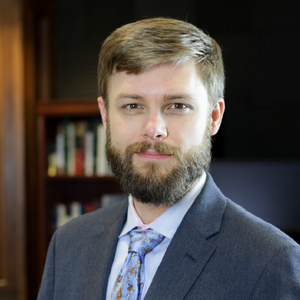Trent England | July 29, 2014
Destroying Uber?
Trent England
The greatest threat to Uber and similar disruptive innovations is not that they will be outlawed. Quite the opposite. What will diminish the promise of these new ideas are regulatory and licensing schemes that allow the services to operate while gradually transforming them into new government-enabled cartels.
Oklahoma City is considering just such a set of new regulations for Uber. The proposed rules are unnecessary. If adopted, they will reduce the economic vitality of the city, and will fall hardest on the poor.
Understandably, most media are focused on the simplest story: to ban or not to ban Uber. Today’s Wall Street Journal covers one such Uber battle.
With smartphone apps injecting competition into the world's taxi markets, some governments recognize the boon to consumer choice while others scramble to protect local unions and cartels. Miami, St. Louis, Memphis, Brussels, and Berlin have all banned Uber, and last week Seoul moved to do the same.
Yet these bans will ultimately fail, like Cuba’s cellphone ban or Massachusetts’ ban on car radios. So long as Uber and similar services exist somewhere, consumer demand eventually will overpower prohibition. Whether bans are repealed or simply ignored, they will not last. More troubling are regulatory schemes that will reduce the benefits of these innovations while transforming today’s upstarts into tomorrow’s cartels.
A cartel is a group of businesses that conspire together to keep prices artificially high, enriching the businesses at the expense of consumers. In the United States, anti-trust laws make most cartel behavior illegal — except for one loophole big enough to drive a fleet of taxis through. When businesses work with politicians to establish cartels through regulation, anti-trust laws do not apply. Of course, businesses and politicians never admit they are conspiring to raise prices. Instead, they defend cartel-creating regulations based on universal values like safety and fairness.
This is exactly how Oklahoma City regulators explain their proposed rules. They may honestly believe it — regulators often find it simply incomprehensible that others can live their lives without constant oversight. If all you have is a hammer, as they say, everything looks like a nail.
Oklahoma City’s proposed rules include special permits for Uber drivers (presumably already licensed drivers), a license for Uber itself (which strangely seems to be have been able to operate thus far without forms and fees — who knew that was possible?), and vehicle inspections and inspection decals (the vehicles, like the drivers, are already street-legal).
The irony is that Uber is already safer than highly regulated alternatives like taxis, and not thanks to government. The business model is to be better than taxis — faster, more comfortable, and safer. Cars are tracked by GPS, drivers are background-checked, everything is insured, and both customers and drivers are empowered to give feedback that actually means something. Why would Uber do this without being forced to? Competition.
Perhaps a more important question: Why have taxi services not done all this already? The answer is the other side of the same coin — a lack of competition. All those regulations on taxis do not make them better, but they do make it difficult for competitors to enter the market. The regulations reduce competition and help taxis act as a cartel, charging more or simply providing less.
The Uber innovation is not good for taxi companies and their drivers, but only because they have worked hand-in-hand with politicians against consumers. The Uber innovation is very good for consumers (my friend Julia Shaw offers a personal Uber story; Prof. John McGinnis explains why Uber and similar innovations may “decrease inequality of consumption”). Uber also has created jobs and spurred economic growth.
Whether Oklahoma City’s regulations are well-meaning or not, they are unnecessary and counterproductive. They will decrease the innovative power of services like Uber. Even if this effect is small (economists would say it is only “at the margin”), it will fall hardest on the poorest — consumers and drivers alike. Eventually, it is exactly this sort of regulation that transforms innovators into cartels, harming consumers and constraining economic vitality.
Photo: 360b / Shutterstock.com

Trent England
David and Ann Brown Distinguished Fellow
Trent England is the David and Ann Brown Distinguished Fellow at the Oklahoma Council of Public Affairs, where he previously served as executive vice president. He is also the founder and executive director of Save Our States, which educates Americans about the importance of the Electoral College. England is a producer of the feature-length documentary “Safeguard: An Electoral College Story.” He has appeared three times on Fox & Friends and is a frequent guest on media programs from coast to coast. He is the author of Why We Must Defend the Electoral College and a contributor to The Heritage Guide to the Constitution and One Nation Under Arrest: How Crazy Laws, Rogue Prosecutors, and Activist Judges Threaten Your Liberty. His writing has also appeared in the Wall Street Journal, USA Today, Washington Times, Hillsdale College's Imprimis speech digest, and other publications. Trent formerly hosted morning drive-time radio in Oklahoma City and has filled for various radio hosts including Ben Shapiro. A former legal policy analyst at The Heritage Foundation, he holds a law degree from The George Mason University School of Law and a bachelor of arts in government from Claremont McKenna College.